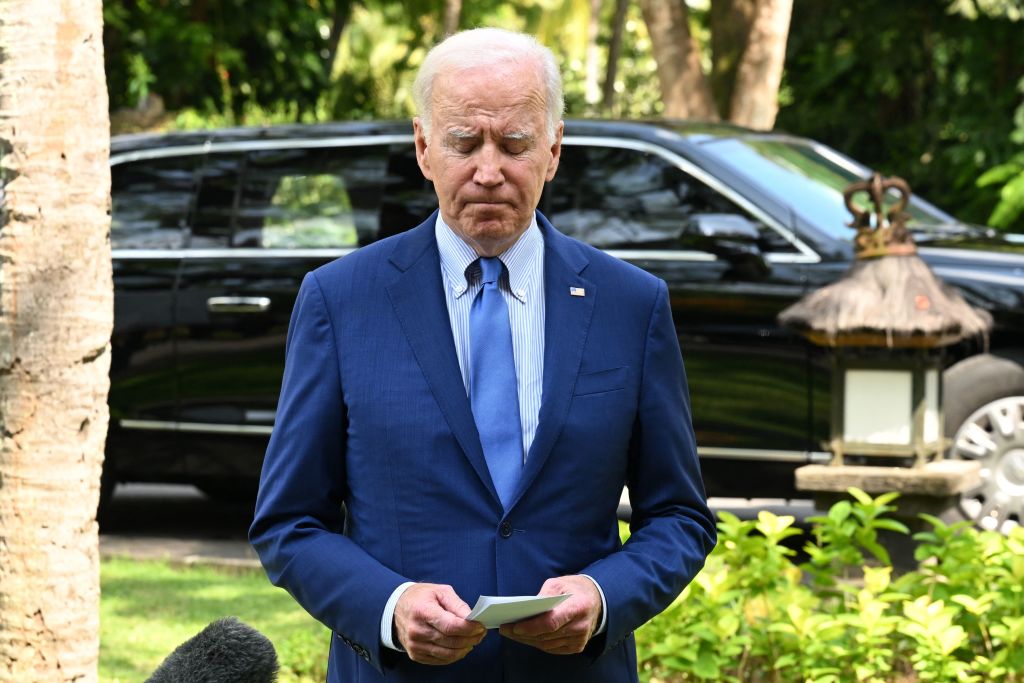If a series of comments from European officials reflect a wider view, a gap may be opening between the Biden administration and its European allies over the way America has conducted itself during the Ukraine war.
The report, which relies extensively on sources that are not named, frames European officials as fuming that America grows stronger while Europe faces a cold winter of privations due to shortages in fuel for heating, while U.S. subsidies for green industries have become a flashpoint of contention.
“The fact is, if you look at it soberly, the country that is most profiting from this war is the U.S. because they are selling more gas and at higher prices, and because they are selling more weapons,” an unnamed “senior official” told Politico.
“We are really at a historic juncture,” the senior EU official said, arguing that the double hit of trade disruption from U.S. subsidies and high energy prices risks turning public opinion against both the war effort and the transatlantic alliance. “America needs to realize that public opinion is shifting in many EU countries.”
One source Politico described as a “senior official from a European capital,” said some Europeans view the necessary replacement of American-made weapons shared with Ukraine taking years and bringing millions to U.S. defense companies.
Another source Politico described as an “EU diplomat” argued that “the money they are making on weapons” could help Americans understand that making “all this cash on gas” might be “a bit too much.”
A discount in gas sold to Europe could help us to “keep united our public opinions,” the diplomat is quoted as saying.
“It’s not good, in terms of optics, to give the impression that your best ally is actually making huge profits out of your troubles,” the diplomat said.
European Union chief diplomat Josep Borrell said the Biden administration should weigh the costs it imposes on allies.
“Americans — our friends — take decisions which have an economic impact on us,” he said.
“The rise in gas prices in Europe is caused by Putin’s invasion of Ukraine and Putin’s energy war against Europe, period,” a National Security Council representative said, adding that liquefied natural gas exports to Europe “increased dramatically and enabled Europe to diversify away from Russia.”
The Politico report described America’s perceived lack of awareness when it comes to European problems as a primary sticking point for Europeans.
“The Europeans are discernibly frustrated about the lack of prior information and consultation,” David Kleimann of the Bruegel think tank said.
Officials fear the Inflation Reduction Act’s $369 billion subsidy for green industries will harm Europe.
“The Inflation Reduction Act has changed everything,” the report quoted another “EU diplomat” as saying. “Is Washington still our ally or not?”
In an Op-Ed on Bloomberg, Hal Brands notes that the war “has been a strategic windfall for Washington. Russia’s military is being reduced to rubble. The North Atlantic Treaty Organization is expanding and strengthening its defenses. China is facing greater resistance in the Western Pacific, as Japan, Taiwan and Australia hasten their military preparations. European nations that now see the downsides of dependence on one coercive autocracy are reconsidering their ties with another: Beijing.”
“Yet key officials wonder whether the US has already reaped all the advantages the Ukraine war has to offer,” he wrote, adding that, “A long war that exposes how pitifully inadequate the US defense industrial base has become could force the nation to get serious about rearmament.”
A report in The New York Times suggests no end to the war is in sight.
Allies are providing Ukraine “just enough” weapons “to survive, not enough to regain territory,” Ulrich Speck, a German foreign policy analyst, said. “The idea seems to be that Russia should not win, but also not lose.
“What countries send and how slowly they send it tells us a lot about the war aims of Western countries. And it becomes even more important now because Ukraine is more dependent on Western arms,” he said.
This article appeared originally on The Western Journal.
























 Continue with Google
Continue with Google